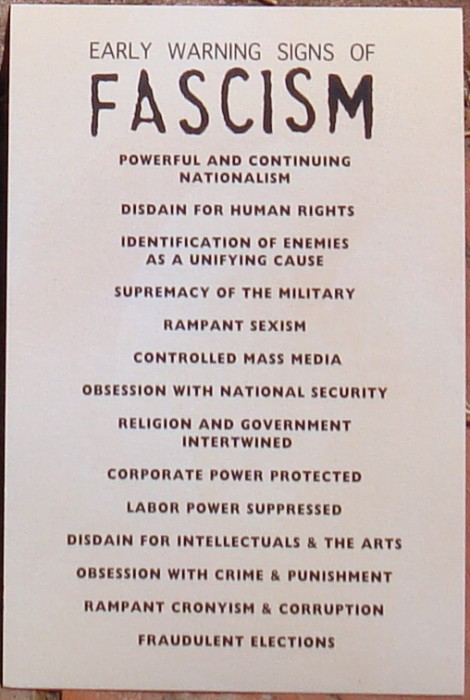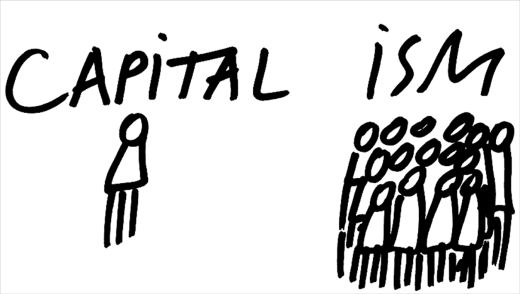Capitalism vs. Free Market — what’s in a name, and is Fascism in the picture?
Despite my best efforts, this Sunday is on the best way to being a random-web-surfing day, reading (among many other things) critiques of Capitalism using an Indian company’s mobile network in remote Tanzania…
This randomness is of course the source of what we often deplore as procrastination, but I’m realizing it can also set free creativity, by presenting side by side concepts that seem only very loosely related at first. So here is my starting point, a very insightful remark on what difference it makes if we speak about Capitalism or Free Market Economy, from John Kenneth Galbraith, Canadian-American economist and author, published in the article Free Market Fraud in The Progressive magazine in 1999:
Let’s begin with capitalism, a word that has gone largely out of fashion. The approved reference now is to the market system. This shift minimizes–indeed, deletes–the role of wealth in the economic and social system. And it sheds the adverse connotation going back to Marx. Instead of the owners of capital or their attendants in control, we have the admirably impersonal role of market forces. It would be hard to think of a change in terminology more in the interest of those to whom money accords power. They have now a functional anonymity.
He goes on to denounce many instances where we (as a society as well as our appointed specialists on that matter, economists) fail to see the power workings of the „Free Market Economy“ and especially its influence over the government.
This argument, including its reference to how the public discourse about the issue is confused by objectivist language, could come straight out of a sketch-book of my own critiques of Capitalism (see NeuerPlan, „new plan“), even though the article is very short, and mostly stays on common knowledge grounds using the american military industry as its main example. (Oh I wish I’d come around to completing my own series of critique begun long ago!)
Now, this thought is not new to me in itself, but became more urgent when I came across a definition of Fascism that has some authority, coming from the Italian self-described „philosopher of Fascism“ Giovanni Gentile and being endorsed by Mussolini:
Fascism should more appropriately be called corporatism because it is a merger of state and corporate power.
(This, by the way, is quoted from the FAQ of the „Political Compass“ where you can localize yourself and some historical figures politically on the dimensions of „Economic Left/Right“ and „Social Libertarian/Authoritarian“. The FAQ is much more interesting than the actual test, though.)
And the suggested consequence, that increased influence / merger of corporate interests and government leads onto the continuum of fascist politics, is pretty plausible to me. And reminded me of a (only partly humorous) postcard I found when I was in Stanford almost three years ago, which features a summary of „Early Warning Signs of Fascism“ (claiming to be from independent research on actual fascist regimes, but according to a quick search more plausibly just written down in an Op-Ed in 2004, itself still worthy reading and considering):
The argument, which the author (Laurence W. Britt) also put forward in his book „June, 2004″ is that in the Bush era, America was visibly moving in that direction. How implausible is it to assume that again, corporate interests‘ hold of the government had a role to play in this?
True to my current randomness, and to end on a more cheerful tune on this sunny Sunday afternoon, here a cartoon of Capitalisms core problem by Dan Perjovschi.

